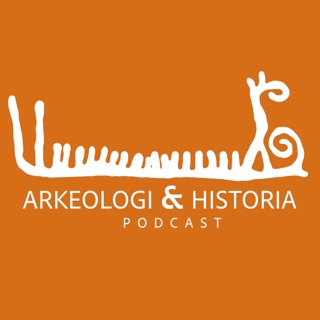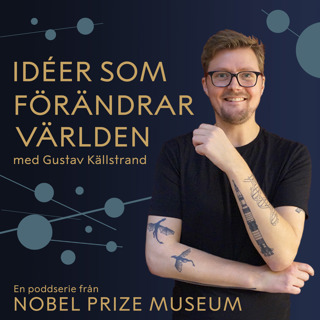
Bonus | Cuts to Science Funding and Why They Matter
The Trump administration, led by Elon Musk and his Department of Government Efficiency, has proposed sweeping cuts to spending on science research here in the US, in particular at the National Institutes of Health and the National Science Foundation. I explain a little about what is being cut and why these funds are important to scientific progress. I try, for what it's worth, to provide these explanations in a way that would be informative to those who generally favor cutting government waste in dramatic fashion.Blog post with transcript: https://www.preposterousuniverse.com/podcast/2025/02/12/bonus-cuts-to-science-funding-and-why-they-matter/Support Mindscape on Patreon.Indirect costs primerCuts to NIH indirect costsAppropriated funds are mandated by statuteProposed NSF cutsElon Musk doesn't understand indirect costsShrimp treadmill storyBribing foreign officialsDeleting NSA web pagesExecutive Orders are not lawsHistory of impoundmentsSee Privacy Policy at https://art19.com/privacy and California Privacy Notice at https://art19.com/privacy#do-not-sell-my-info.
12 Feb 20251h 10min

304 | James Evans on Innovation, Consolidation, and the Science of Science
It is a feature of many human activities - sports, cooking, music, interpersonal relations - that being able to do them well doesn't necessarily mean you can accurately describe how to do them well. Science is no different. Many successful scientists are not very good at explaining what goes into successful scientific practice. To understand that, it's necessary to study science in a scientific fashion. What kinds of scientists, in what kinds of collaborations, using what kinds of techniques, do well? I talk with James Evans, an expert on collective intelligence and the construction of knowledge, about how science really works.Blog post with transcript: https://www.preposterousuniverse.com/podcast/2025/02/10/304-james-evans-on-innovation-consolidation-and-the-science-of-science/Support Mindscape on Patreon.James Evans received his Ph.D. in Sociology from Stanford University. He is currently the Max Palevsky Professor of History and Civilizations, Director of Knowledge Lab, and Faculty Director of Computational Social Science at the University of Chicago; External Professor at the Santa Fe Institute; External Faculty at the Complexity Science Hub, Vienna; and Visiting Faculty Researcher at Google.Knowledge Lab web siteUniversity of Chicago web pageGoogle scholar publicationsSee Privacy Policy at https://art19.com/privacy and California Privacy Notice at https://art19.com/privacy#do-not-sell-my-info.
10 Feb 20251h 16min

303 | AMA | February 2025
Welcome to the February 2025 Ask Me Anything episode of Mindscape! These monthly excursions are funded by Patreon supporters (who are also the ones asking the questions). We take questions asked by Patreons, whittle them down to a more manageable number -- based primarily on whether I have anything interesting to say about them, not whether the questions themselves are good -- and sometimes group them together if they are about a similar topic. Enjoy!Blog post with questions and transcript: https://www.preposterousuniverse.com/podcast/2025/02/03/ama-february-2025/Support Mindscape on Patreon.See Privacy Policy at https://art19.com/privacy and California Privacy Notice at https://art19.com/privacy#do-not-sell-my-info.
3 Feb 20253h 44min

303 | James P. Allison on Fighting Cancer with the Immune System
A typical human lifespan is approximately three billion heartbeats in duration. Lasting that long requires not only intrinsic stability, but an impressive capacity for self-repair. Nevertheless, things do occasionally break down, and cancer is one of the most dramatic examples of such breakdown. Given that the body is generally so good at protecting itself, can we harness our internal security patrol - the immune system - to fight cancer? This is the hope of Nobel Laureate James Allison, who works on studying the structure and behavior of immune cells, and ways to coax them into fighting cancer. This approach offers hope of a way to combat cancer effectively, lastingly, and in a relatively gentle way.Support Mindscape on Patreon.Blog post with transcript: https://www.preposterousuniverse.com/podcast/2025/01/27/303-james-p-allison-on-fighting-cancer-with-the-immune-system/James P. Allison received his Ph.D. in biology from the University of Texas at Austin. He is currently Regental Professor and Chair of the Department of Immunology, the Olga Keith Wiess Distinguished University Chair for Cancer Research, Director of the Parker Institute for Cancer Research, and Director of the James P. Allison Institute at MD Anderson Cancer Center. He is the subject of the documentary film Jim Allison: Breakthrough. Among his numerous awards are the Breakthrough Prize in Life Sciences and the Nobel Prize in Physiology or Medicine.Web pageNobel Prize citationGoogle Scholar publicationsWikipediaSee Privacy Policy at https://art19.com/privacy and California Privacy Notice at https://art19.com/privacy#do-not-sell-my-info.
27 Jan 20251h 7min

302 | Chris Kempes on the Biophysics of Evolution
Randomness plays an important role in the evolution of life (as my evil twin will tell you). But random doesn't mean arbitrary. Biological organisms are physical objects, after all, and subject to the same laws of physics as non-biological matter is. Those laws place constraints on how organisms can fulfill their basic functions of metabolism, reproduction, motility, and so on. Easy to say, but how can we turn this into quantitative understanding of actual organisms? Today I talk with physical biologist Chris Kempes about how physics can help us understand the size of organisms, their metabolisms, and features of major transitions in evolution.Support Mindscape on Patreon.Blog post with transcript: https://www.preposterousuniverse.com/podcast/2025/01/20/302-chris-kempes-on-the-biophysics-of-evolution/Chris Kempes received his Ph.D. in physical biology from the Massachusetts Institute of Technology. He is currently Professor and a member of the Science Steering Committee at the Santa Fe Institute. His research involves the origin of life and the constraints placed by physics on biological function and evolution.Web siteSanta Fe Institute web pageGoogle Scholar publicationsOrigins of Life online courseSee Privacy Policy at https://art19.com/privacy and California Privacy Notice at https://art19.com/privacy#do-not-sell-my-info.
20 Jan 20251h 30min

301 | Tina Eliassi-Rad on Al, Networks, and Epistemic Instability
Big data is ruling, or at least deeply infiltrating, all of modern existence. Unprecedented capacity for collecting and analyzing large amounts of data have given us a new generation of artificial intelligence models, but also everything from medical procedures to recommendation systems that guide our purchases and romantic lives. I talk with computer scientist Tina Elassi-Rad about how we can sift through all this data, make sure it is deployed in ways that align with our values, and how to deal with the political and social dangers associated with systems that are not always guided by the truth.Support Mindscape on Patreon.Blog post with transcript: https://www.preposterousuniverse.com/podcast/2025/01/13/301-tina-eliassi-rad-on-al-networks-and-epistemic-instability/Tina Eliassi-Rad received her Ph.D. in computer science from the University of Wisconsin-Madison. She is currently Joseph E. Aoun Chair of Computer Sciences and Core Faculty of the Network Science Institute at Northeastern University, External Faculty at the Santa Fe Institute, and External Faculty at the Vermont Complex Systems Center. She is a fellow of the Network Science Society, recipient of the Lagrange Prize, and was named one of the 100 Brilliant Women in AI Ethics.Web siteNortheastern web pageGoogle Scholar publicationsWikipediaSee Privacy Policy at https://art19.com/privacy and California Privacy Notice at https://art19.com/privacy#do-not-sell-my-info.
13 Jan 20251h 9min

300 | Solo: Does Time Exist?
A new year, and a new centennial -- 300 (regularly-numbered) episodes of Mindscape! Our tradition is to have a solo episode, and what better topic than the nature of time? Physicists and philosophers have so frequently suggested that time is some kind of illusion that it's become almost passé to believe that it might be fundamental. This is an issue where, despite the form of the question, physics has important things to say that most philosophers haven't yet caught up to. I will talk about ideas from quantum mechanics and quantum gravity that bear on the question of whether time is emergent or fundamental, and the implications of each possibility.Support Mindscape on Patreon.Blog post with transcript: https://www.preposterousuniverse.com/podcast/2025/01/06/300-solo-does-time-exist/Some of the papers discussed herein:Carroll (2008), "What If Time Really Exists?"Dyson, Kleban, and Susskind (2002), "Disturbing Implications of a Cosmological Constant."Albrecht and Sorbo (2004), "Can the Universe Afford Inflation?"Boddy, Carroll, and Pollack (2014), "De Sitter Space Without Dynamical Quantum Fluctuations."Lloyd (2016), "Decoherent Histories Approach to the Cosmological Measure Problem."Page and Wootters (1983), "Evolution Without Evolution: Dynamics Described by Stationary Observables."Albrecht (1994), "The Theory of Everything vs the Theory of Anything."Albrecht and Iglesias (2007), "The Clock Ambiguity and the Emergence of Physical Laws."See Privacy Policy at https://art19.com/privacy and California Privacy Notice at https://art19.com/privacy#do-not-sell-my-info.
6 Jan 20252h 11min

Holiday Message | Hits and Misses
It's the end of the year, and time for our annual holiday break here at Mindscape. But as usual, we wrap up with a Holiday Message. This year, inspired by Joni Mitchell's "Hits" and "Misses" albums, I go through my scientific papers and talk about some of my favorites -- some of which were hits, in terms of making an impact on subsequent research, and some of which were misses by that standard. But I love them all! It's an excuse to talk about process -- how papers come to be, from the initial informal idea to sitting down and doing the work.Support Mindscape on Patreon.Blog post with transcript: https://www.preposterousuniverse.com/podcast/2024/12/23/holiday-message-hits-and-misses/Here are links to the papers I discuss in the episode.S.M. Carroll, G.B. Field and R. Jackiw, 1990, "Limits on A Lorentz and Parity-Violating Modification of Electrodynamics,'' Phys. Rev. D 41, 1231. [pdf file; inSPIRE]S.M. Carroll, E. Farhi and A.H. Guth, 1992, "An Obstacle to Building a Time Machine,'' Phys. Rev. Lett. 68, 263; Erratum: 68, 3368. [pdf file; inSPIRE]S.M. Carroll, E. Farhi, A.H. Guth and K.D. Olum, 1994, "Energy-Momentum Restrictions on the Creation of Gott Time Machines,'' Phys. Rev. D 50, 6190; gr-qc/9404065. [arXiv; pdf; inSPIRE]S.M. Carroll, 1998, "Quintessence and the Rest of the World,'' Phys. Rev. Lett. 81, 3067; astro-ph/9806099. [arXiv; pdf; inSPIRE]S.M. Carroll, V. Duvvuri, M. Trodden, and M.S. Turner, 2003, "Is Cosmic Speed-Up Due to New Gravitational Physics?'' astro-ph/0306438. [arXiv; pdf; inSPIRE]S.M. Carroll and J. Chen, 2004, "Spontaneous Inflation and the Origin of the Arrow of Time'', hep-th/0410270. [arXiv, inSPIRE]L. Ackerman, M.R. Buckley, S.M. Carroll, and M. Kamionkowski, 2008, "Dark Matter and Dark Radiation," arxiv:0807.5126. [arXiv; pdf; inSPIRE]S.M. Carroll, M.C. Johnson, and L. Randall, 2009, "Dynamical Compactification," arxiv:0904.3115. [arXiv; pdf; inSPIRE]C. Cao, S.M. Carroll, and S. Michalakis, 2016, "Space from Hilbert Space: Recovering Geometry from Bulk Entanglement," arxiv:1606.08444. [arXiv, inSPIRE]C. Cao and S.M. Carroll, 2018, "Bulk Entanglement Gravity without a Boundary: Towards Finding Einstein's Equation in Hilbert Space," arxiv:1712.02803. [arXiv, inSPIRE]N. Bao, S.M. Carroll, A. Chatwin-Davies, J. Pollack, and G. Remmen, 2017, “Branches of the Black Hole Wave Function Need Not Contain Firewalls," arxiv:1712.04955. [arXiv, inSPIRE]See Privacy Policy at https://art19.com/privacy and California Privacy Notice at https://art19.com/privacy#do-not-sell-my-info.
23 Dec 20242h 1min




















